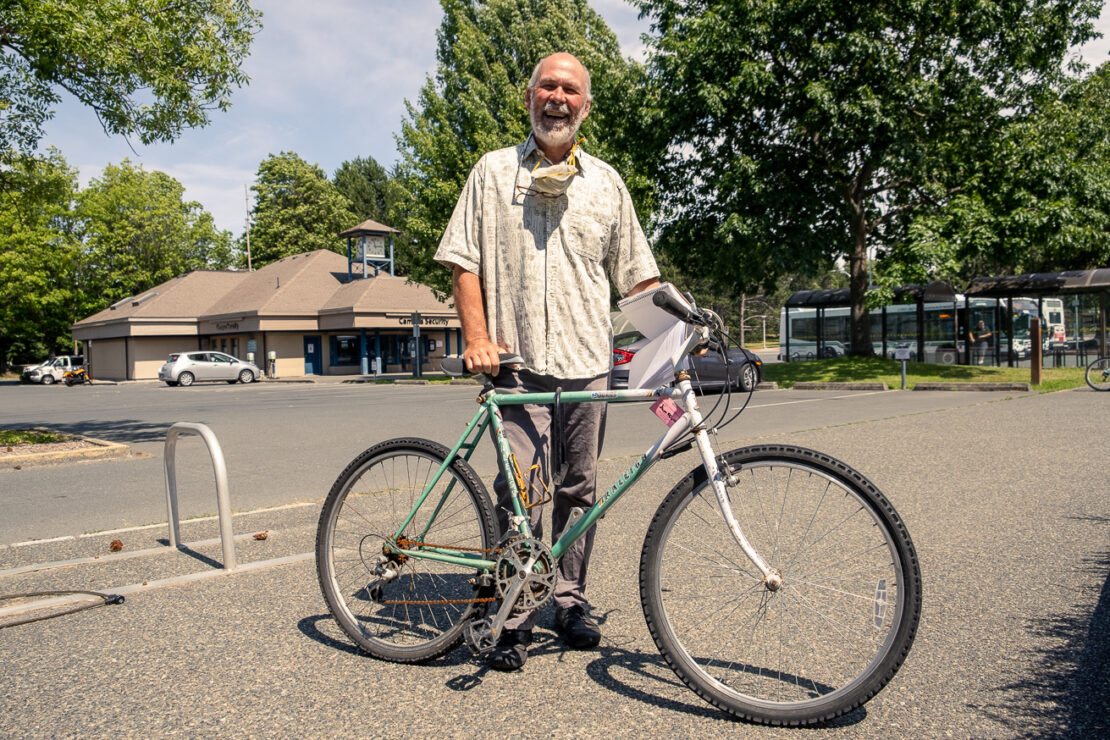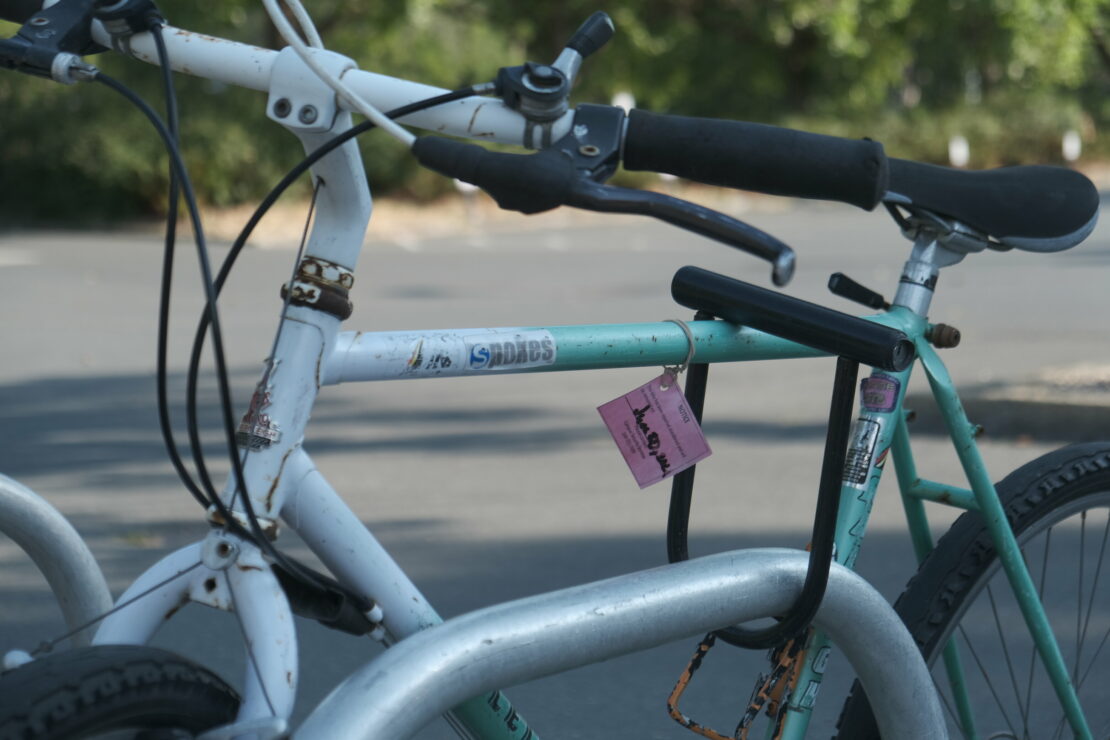With SPOKES closed, abandoned bikes on campus find new homes overseas

If you leave your bike on campus for too long, it might end up in Belarus.
Up to 50 to 100 bikes are abandoned annually on campus. The university says the number of abandoned bikes have decreased amid COVID-19. But with the continued closure of SPOKES — which previously upcycled abandoned campus bikes to UVic students — they now have to find international homes.
According to UVic media relations, Campus Security collects abandoned bikes, which are then donated to a local charity that fixes them up and sends them overseas. But as the Martlet discovered, it’s a little more complicated than that: depending on when a bike gets abandoned on campus, it could’ve been sold at police auction, passed along to SPOKES for a new cohort of bike-borrowing students, or simply ‘disposed of.’
With the pandemic, campus has been largely abandoned. The gently rusting bicycles still there — some missing a part or two — stand out. Tags put on abandoned bikes by Campus Security condemn the latest batch of abandoned bikes to a removal date of late June 2021.
“Every few months, we will drive around campus and check bike racks,” said Sam Braun at Campus Security Services.
Bikes that are missing parts — or simply haven’t been moved in a long time — are marked with a colorful tag on the handlebars by Campus Security. If they remain undisturbed for 30 days, they are taken into storage and Campus Security checks with police to see if they are registered as a stolen bike. Throughout this process, Braun says bike owners can contact Campus Security and retrieve their bikes.

Abandoned bikes on campus are recycled, donated, or disposed of through the UVic Surplus Asset Disposal Program, according to a university notice dated October 2020. UVic has previously collected abandoned bikes on campus for police to sell at Saanich and Oak Bay police auctions, according to UVic communications in 2016.
Some of the bikes abandoned on campus are being sent to Compassionate Resource Warehouse, a charity that sends supplies in 40-foot shipping containers to NGO partners all around the world.
Campus Security and Compassionate Resource Warehouse have a longstanding partnership, said the charity’s President, Dell Marie Wergeland.
“[Campus Security] calls us, or they deliver,” said Wergelend. “We’ve been doing this for years.”
Apart from receiving abandoned campus bikes, some of the items that end up in the campus security lost and found collection also get donated to them. “It’s always fantastic. Otherwise, [stuff] would end up in Heartland [landfill],” said Wergeland.
Volunteers such as Tim Storm fix up the abandoned bikes before the bikes are shipped overseas..
Wergeland says that they are currently preparing shipping containers to Ethiopia, Columbia, and Sierra Leone. “The whole load is not all bikes, but bikes are very precious because it’s transportation,” said Wergeland.
Some abandoned bikes have a SPOKES sticker on them, indicating that the bikes are part of the popular bike-loan program previously operating out of the basement of the Jamie Cassels Centre (formerly known as the University Student Centre).
A year-long dispute with the university regarding the program’s affiliation — SPOKES is unincorporated, non-hierarchical, and independent from both the student union and the university — has seen the program suspended by the university during COVID-19. Yet 32 abandoned bikes were donated to SPOKES by UVic’s Department of Residence Facilities in February 2020.
“As far as I know, we get all of them. I had not heard that they go anywhere else,” said Mikael Janssen, a UVic researcher that’s been fixing and loaning out bikes with SPOKES for more than 15 years.
Janssen says that Campus Security came around and asked to drop off some bikes at SPOKES last fall, but they had to refuse due to a lack of space. There are almost a hundred bikes crammed in the cage waiting to be loaned out, an almost unheard-of surplus at SPOKES.
At UBC, abandoned bikes are given to the UBC community bike shop. At UVic, the abandoned bike economy is a little more complicated.
The news that some bikes end up in international destinations came at a surprise to Janssen. But he’s magnanimous about it: “So long as the bikes get used, it’s good.”







